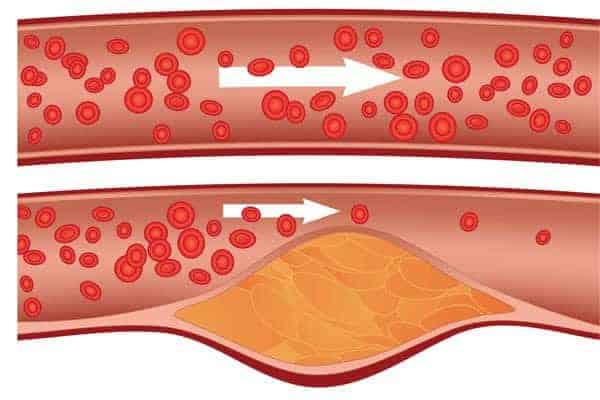15 Emotional Eating Habits Everyone Secretly Relates To
Emotional eating is a universal experience, shaped by both psychology and culture. Food can trigger feel-good chemicals like dopamine, providing temporary relief from stress or sadness. Culturally, meals are woven into family traditions and social rituals, reinforcing their comforting power. This blend of biology and habit makes reaching for snacks in tough moments feel almost instinctive.
1. Snacking When Bored

Boredom frequently triggers mindless snacking, as reaching for chips or cookies becomes a way to fill empty moments and seek stimulation. This habit isn’t always about hunger; it’s often a response to a lack of engagement or excitement. People tend to eat when bored because eating offers a quick, easy distraction from monotony—making boredom a surprisingly powerful driver of emotional eating.
2. Craving Sweets Under Stress

During stressful times—like looming work deadlines or upcoming exams—many people instinctively reach for sugary treats. This habit is rooted in the temporary mood boost sugar delivers, offering quick relief from tension or anxiety. Sweets can trigger the brain’s reward system, making us feel better, if only for a moment.
3. Eating for Celebration

Food often becomes the centerpiece of celebrations, whether it’s indulging in cake at birthdays or dining out after a big promotion. These habits aren’t just about sustenance—they’re about amplifying joy and marking special moments. Many cultures have rituals built around shared meals, reinforcing the bond between food and happiness.
4. Midnight Refrigerator Raids

Many people find themselves sneaking into the kitchen late at night, searching for comfort foods when loneliness or insomnia strikes. These midnight refrigerator raids often happen when disrupted sleep cycles increase cravings and reduce willpower. Poor sleep can lead to emotional eating at night, making it harder to resist those tempting snacks when the world is quiet and distractions are few.
5. Mindless Munching While Watching TV

Eating in front of the TV or while scrolling through your phone is a classic example of mindless munching. When distracted by screens, it’s easy to finish an entire bag of popcorn or a box of cookies without realizing how much you’ve eaten. This habit often leads to overeating because your focus is on the show—not your food.
6. Rewarding Yourself with Food

Many people treat themselves to something tasty—like ice cream after a workout or pizza after a tough day—as a form of self-reward. This habit taps into the brain’s psychological reward system, reinforcing positive behaviors with pleasurable experiences. While it can boost motivation, it also blurs the line between hunger and emotional satisfaction.
7. Eating to Soothe Sadness

Turning to comfort foods like mac and cheese or chocolate during times of sadness or heartbreak is a common emotional eating habit. These foods are often associated with childhood memories or feelings of warmth and security, making them particularly appealing when we’re feeling low. This behavior provides temporary relief but rarely addresses the underlying emotions.
8. Social Snacking Even When Not Hungry

In social settings—like family gatherings, office parties, or nights out with friends—people often eat simply to fit in, not because they’re genuinely hungry. The desire to participate and bond over food can override physical cues of fullness. This social influence is a powerful driver of mindless snacking.
9. Grazing All Day Long

Constantly reaching for snacks—whether it’s a handful of nuts, chips, or sweets—can become an all-day habit, often occurring without genuine hunger. Unlike structured meals, grazing makes it easy to lose track of portions and fullness cues, leading to unintentional overeating. Practicing mindful eating can help break this cycle.
10. Hiding Treats for Secret Indulgence

Many people secretly stash snacks in drawers, bags, or even the car for private indulgence. This habit is often driven by feelings of guilt or the desire to avoid judgment from others. The secrecy can intensify the emotional connection to food, making it both comforting and shameful.
11. Emotional Overeating After Arguments

After a heated argument or conflict, many people find themselves eating large amounts of food in search of comfort and emotional release. This habit can work as a form of emotional numbing, temporarily distracting from hurt feelings or stress. While it may soothe in the short term, it rarely addresses the underlying issue.
12. Eating Out of Habit, Not Hunger

Many people eat simply because it’s part of their routine—like always grabbing dessert after dinner or snacking during a favorite TV show—rather than responding to true hunger. These habitual patterns can override the body’s natural cues and encourage mindless eating. Practicing mindful eating helps break these cycles and promotes healthier choices.
13. Using Food to Procrastinate

Snacking often becomes a convenient distraction from tasks or responsibilities, like reaching for a snack instead of tackling work or chores. This form of procrastination offers temporary relief but can lead to guilt and decreased productivity. Eating can feel like a justified break, even when it’s not driven by hunger.
14. Feeling Guilty After Indulging

After giving in to emotional eating, many people experience guilt or regret, which can spiral into a cycle of shame and further unhealthy habits. This emotional aftermath often overshadows the enjoyment of eating, making it harder to break free from the pattern. Over time, this pattern strengthens the association between difficult emotions and eating, creating a feedback loop where food becomes both the source of relief and distress.
15. Associating Food with Childhood Memories

Nostalgic foods—like mom’s homemade cookies or traditional holiday meals—often offer powerful emotional comfort, transporting us back to cherished childhood moments. This connection is deeply rooted in the science of memory and food, as taste and smell are closely linked to the brain’s emotional centers.
Conclusion

Emotional eating is a common thread that ties many of us together, reflecting both our shared humanity and the deep connections between food and feelings. While these habits are relatable, embracing a mindful approach can help you better understand and manage emotional triggers. If emotional eating begins to affect your well-being, consider reaching out for support.
.article-content-img img { width: 100% }




